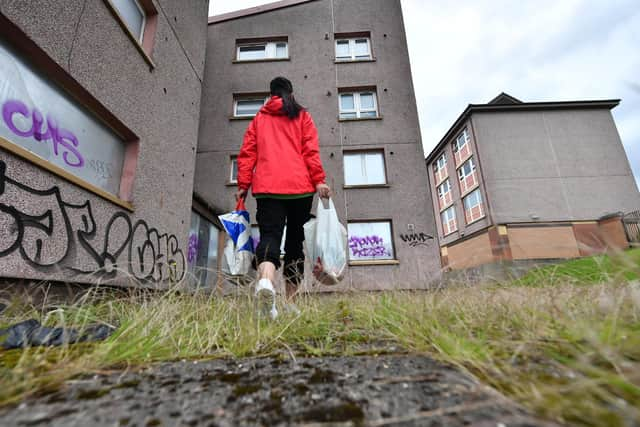Number of Scots living in 'very deep' poverty up almost 50 per cent since mid-1990s
The Joseph Rowntree Foundation said that while a growing number of children and pensioners had been pulled out of poverty over the course of nearly three decades, close to half a million people in the country were enduring “heartbreaking hardship.” Its analysis of poverty statistics, ranging from 1994 up until the beginning of the Covid pandemic, found that between 2017 and 2020, approximately 460,000 people in Scotland were living in very deep poverty, defined as households below 40 per cent of the median household income.
That represents a sharp increase of around 150,000 - equivalent to the population of Dundee – since 1994 to 1997. The charity said the trend demonstrated how policy decisions being made in Edinburgh and London were failing to target “those who have the least,” and warned that single person and minority ethnic households were among those groups most likely to be adversely impacted.
Advertisement
Hide AdAdvertisement
Hide AdIt comes ahead of Scottish Government debate at Holyrood today addressing the cost of living crisis and ongoing efforts to reduce child poverty levels. The debate will be presented by social justice secretary, Shirley-Anne Somerville, who is expected to renew calls for the UK government to overhaul the welfare system.
The foundation’s research, which predates the current inflation woes, found that while number of people classed as living in very deep poverty had increased significantly, the proportion of people just below the poverty line - calculated as 60 per cent of the median household income after housing costs and adjusted for family size.- halved from 10 per cent to five per cent of all people in Scotland.
It said that in the last two decades, incomes from both work and benefits for those living in very deep poverty have not risen “anywhere near enough,” despite work making up a greater proportion of the incomes of people living in very deep poverty now, compared to the mid-1990s.
The charity has urged the UK government to adopt the so-called ‘essentials guarantee’ around Universal Credit, and called on Scottish ministers to recommit to and accelerate their efforts to create a minimum income guarantee. Both solutions, it added, would “overwhelmingly benefit those most at risk of very deep poverty.”
Chris Birt, the foundation’s associate director for Scotland, said: “The story of poverty in Scotland over the past 20 years is a bleak contradiction that both the UK and Scottish Governments need to wake up to. More people just below the poverty line have been pulled above it at the same time as those with the very least falling further behind.


“This rise in very deep poverty can be plainly seen in the hundreds of thousands of food bank parcels provided across the country every year, as well as the growing gap in healthy life expectancy between the most and least deprived areas of Scotland. More must be done to target policies at the half a million people living in very deep poverty.”
Comments
Want to join the conversation? Please or to comment on this article.